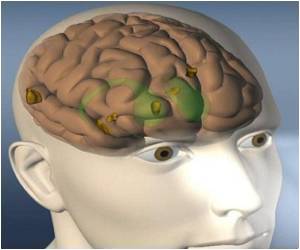Inhibiting Cdk5 enzyme could help minimize brain damage if administered shortly after a stroke, reveals a new research.

He further explained that they are not yet at a point where this new treatment can be given for stroke but this research brings them a step closer to developing the right kinds of drugs.
While several pharmaceutical companies worked to develop Cdk5 inhibitors years ago, these efforts were largely abandoned since research indicated blocking Cdk5 long-term could have detrimental effects.
However the latest study indicated that Cdk5 has both good and bad effects like when working normally, it added phosphates to other proteins that are important to healthy brain function but researchers also found that aberrant Cdk5 activity contributeed to nerve cell death following brain injury and could lead to cancer.
Currently, there is only one FDA-approved drug for acute treatment of stroke, the clot-busting drug tPA and other treatment options include neurosurgical procedures to help minimize brain damage.
The researchers established that no Cdk5 blocker exists that works in a pill form, so the next step would be to develop a systemic drug that could be used to confirm the study's results.
Source-ANI
 MEDINDIA
MEDINDIA




 Email
Email










